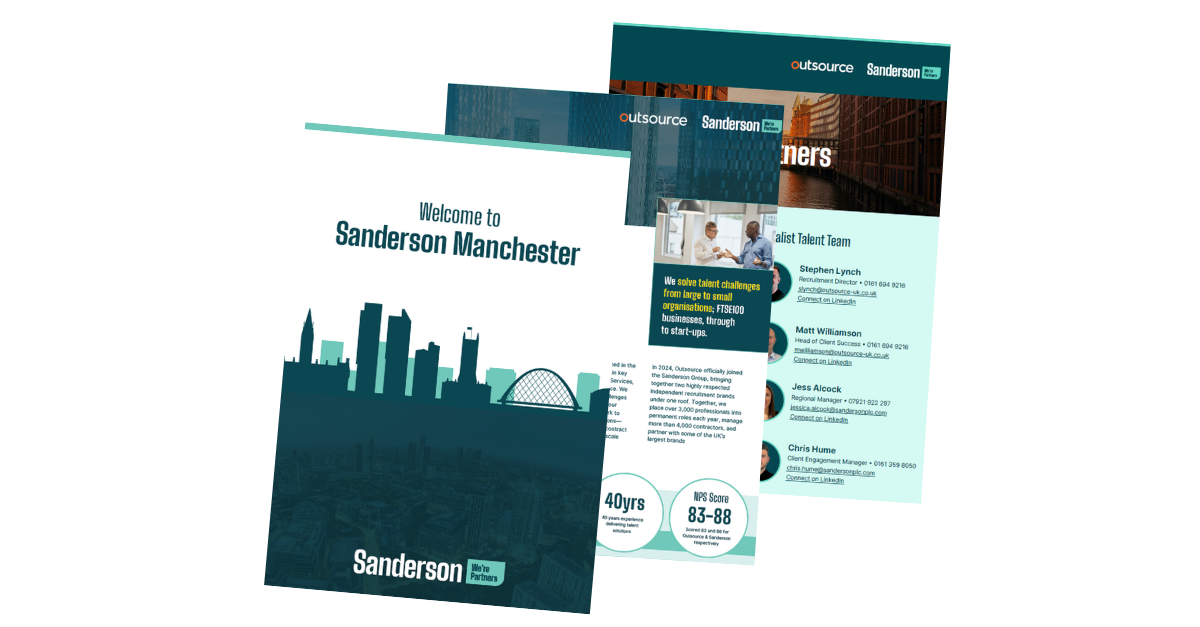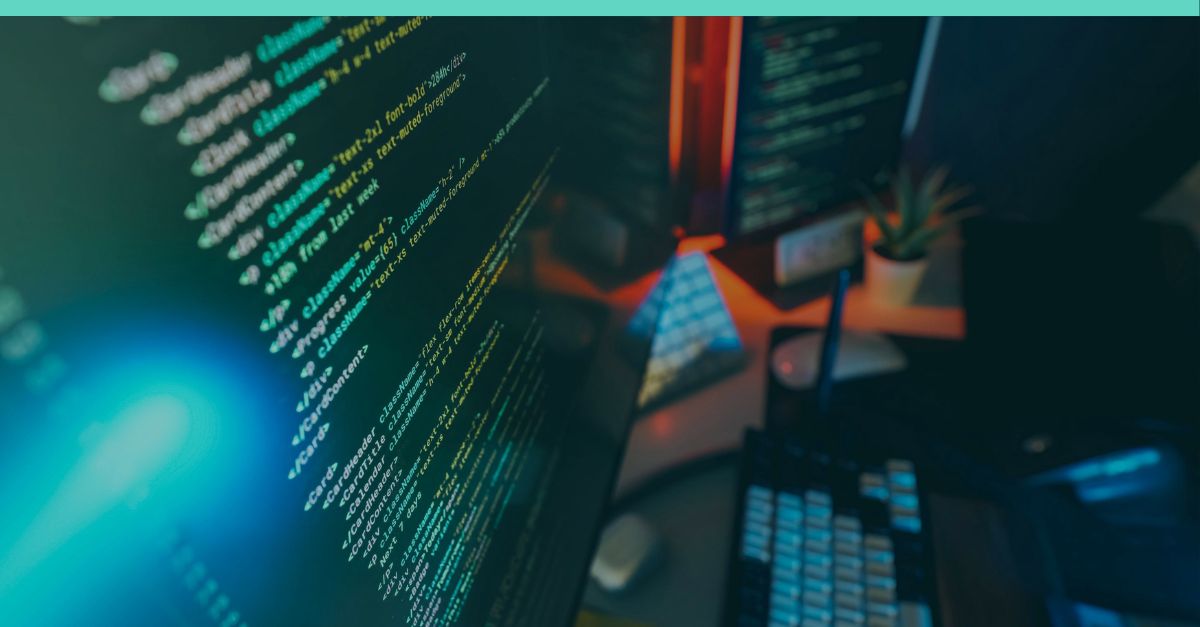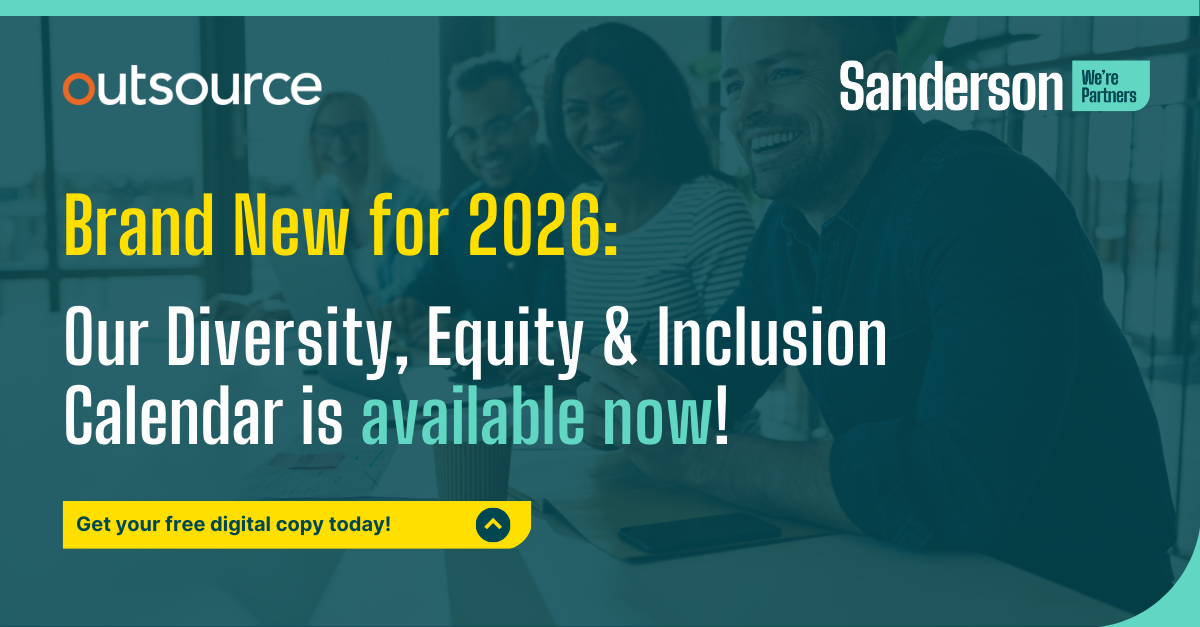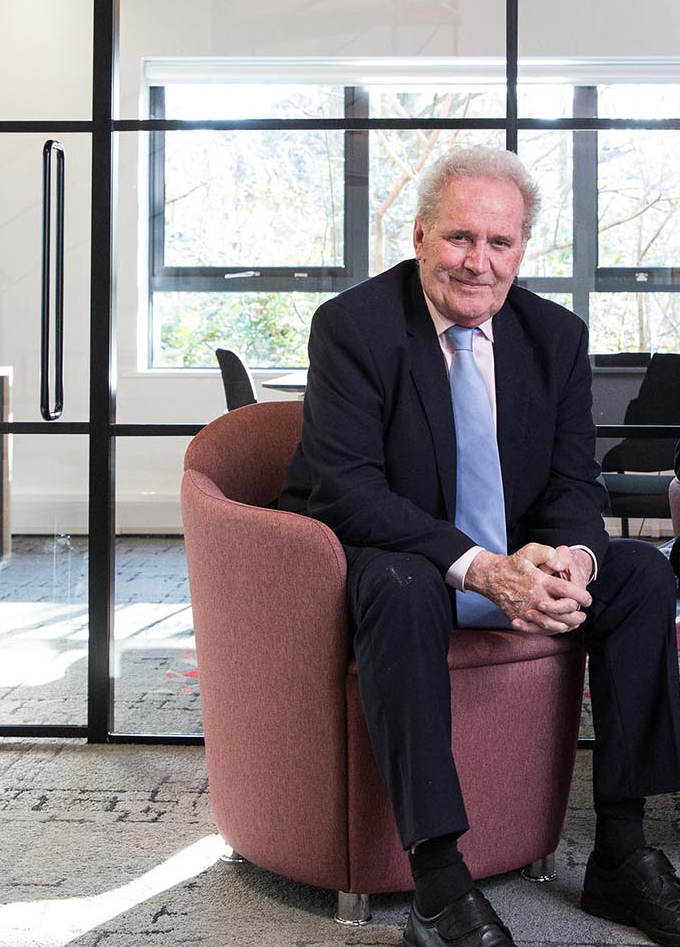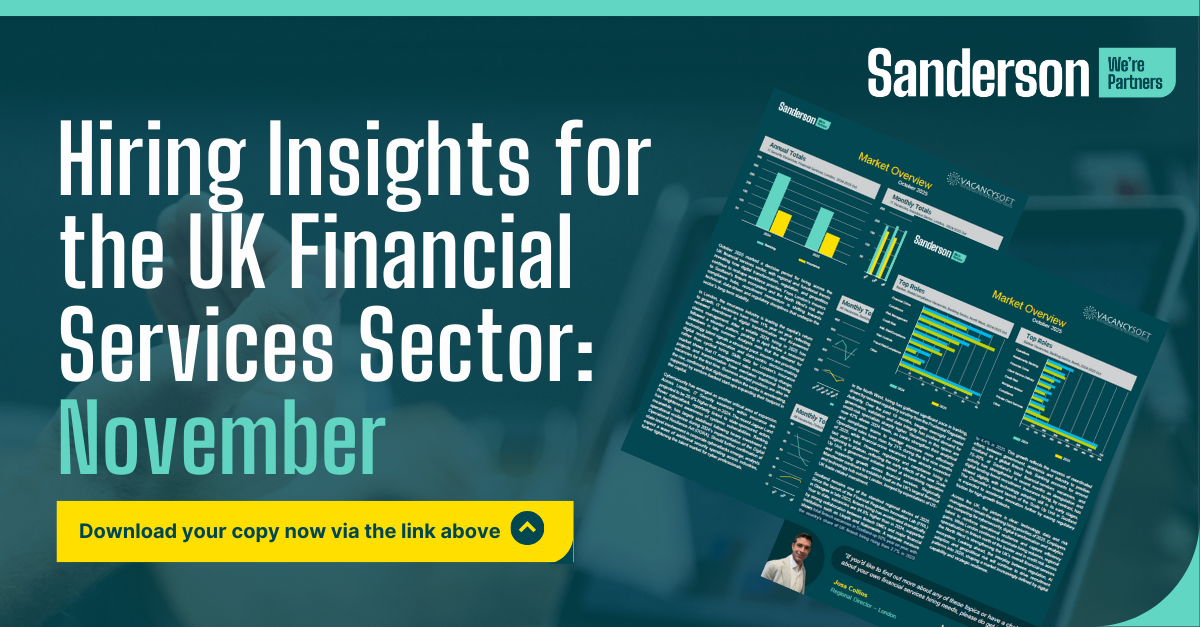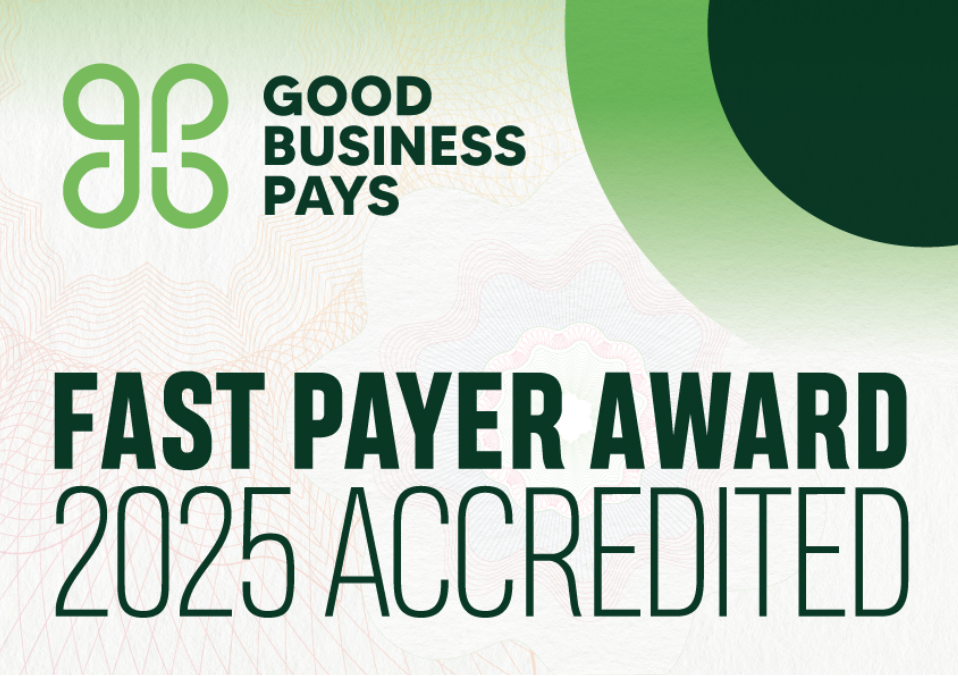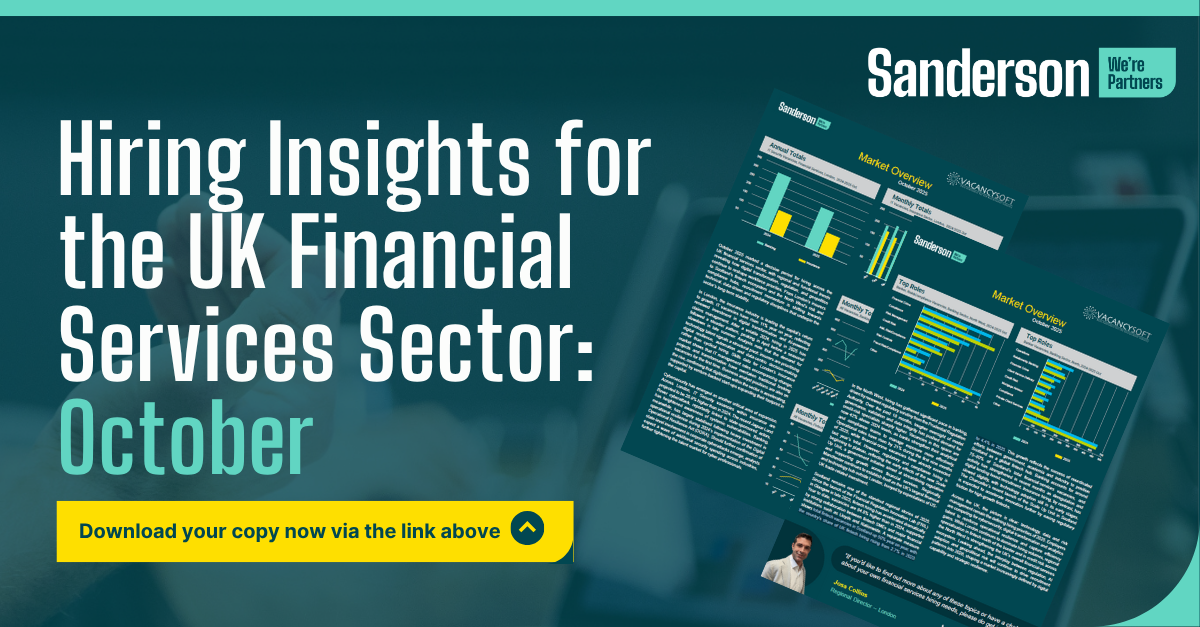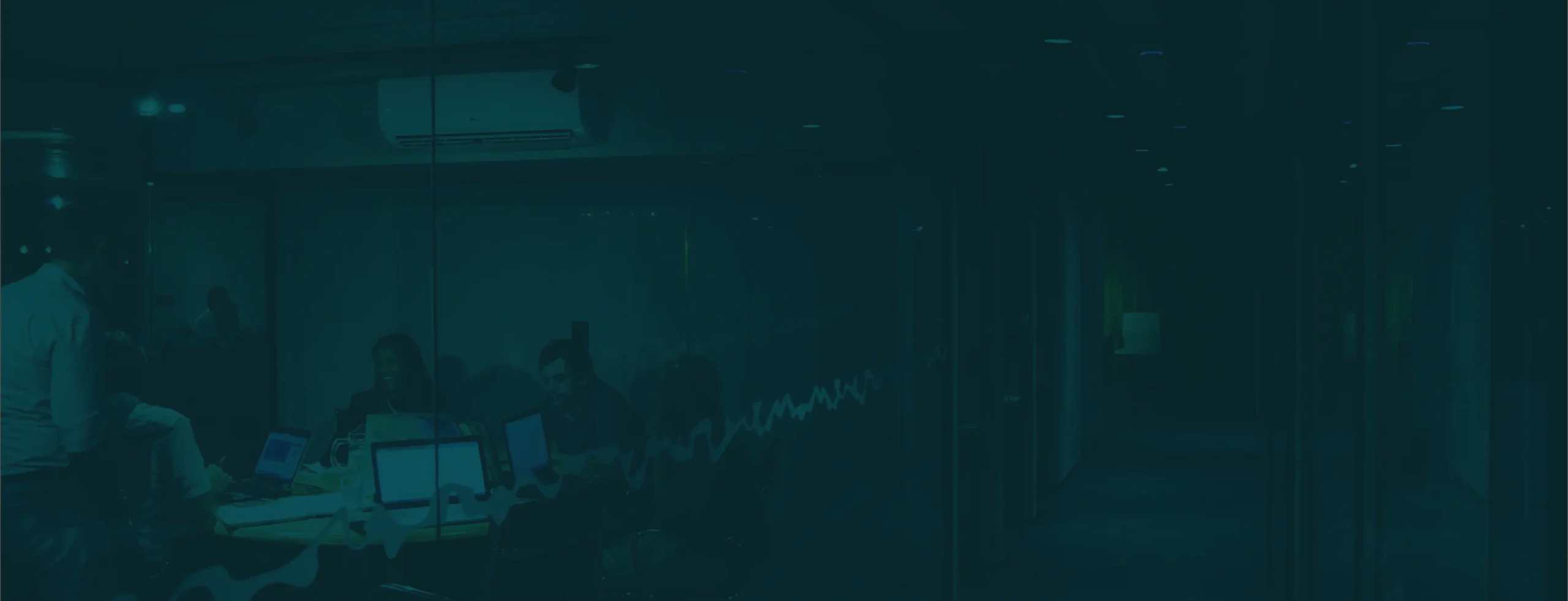
Latest News & Insights
-
![Manchester Means Business: How Sanderson & Outsource Are Redefining Recruitment in the North West]() Reading Time: 3 mins
Reading Time: 3 minsManchester Means Business: How Sanderson & Outsource Are...
Whether you're hiring for a single role or launching a large-scale recruitment programme, Sanderson Manchester is ready to help.
-
![Umbrella Reforms 2026: Your Questions Answered]() Reading Time: 4 mins
Reading Time: 4 minsUmbrella Reforms 2026: Your Questions Answered
Do you feel ready for the Umbrella Reforms due to come into effect later this Spring? Don't worry, we're here to help! This blog provides answers to key questions asked and answered in the informative Q&A session during our recent webinar...
-
![Scaling Smart: The Impact of Project RPO on a Leading Pension Provider’s Talent Strategy]() Reading Time: 4 mins
Reading Time: 4 minsScaling Smart: The Impact of Project RPO on a Leading Pension...
When you need to tighten up your talent strategy and get the right people on board to achieve your goals, sometimes you need a helping hand that works with you flexibly to address your needs. That’s exactly what a Project RPO can do for you.
-
![Building Cyber Resilience into your Hiring Strategies with Sanderson Projects]() Reading Time: 4 mins
Reading Time: 4 minsBuilding Cyber Resilience into your Hiring Strategies with Sanderson...
The Sanderson Projects team works with you to ensure your organisation is set up to defend itself against cyber-attacks.
-
![2026 Diversity, Equity & Inclusion Calendar: Turning Awareness into Action]() Reading Time: 5 mins
Reading Time: 5 mins2026 Diversity, Equity & Inclusion Calendar: Turning Awareness...
We’re excited to officially launch our 2026 Diversity, Equity & Inclusion (DE&I) Calendar - a free, practical resource designed to help organisations move beyond awareness and towards real, measurable culture change.
-
![In Memory of Keith Dawe – Founder of Sanderson]() Reading Time: 2 mins
Reading Time: 2 minsIn Memory of Keith Dawe – Founder of Sanderson
It is with great sadness to share that Keith Dawe, founder of Sanderson, passed away on New Year’s Eve. Sanderson extends its deepest condolences to Keith’s family, friends and colleagues.
-
![Hiring Insights for the UK Financial Services Sector: November]() Reading Time: 5 mins
Reading Time: 5 minsHiring Insights for the UK Financial Services Sector: November
We’ve teamed up with VacancySoft to sum up the latest trends in the UK Financial Services market during November in a handy Report. Find out more here…
-
![Sanderson Awarded the Fast Payer Award for 2025]() Reading Time: 2 mins
Reading Time: 2 minsSanderson Awarded the Fast Payer Award for 2025
Sanderson is delighted to announce that we have been awarded the Fast Payer Award for 2025 from Good Business Pays CIC.
-
![Hiring Insights for the UK Financial Services Sector: October]() Reading Time: 5 mins
Reading Time: 5 minsHiring Insights for the UK Financial Services Sector: October
We’ve teamed up with VacancySoft to sum up the latest trends in the UK Financial Services market during October in a handy Report. Find out more here…
-
![The Impact of AI and BPA on Actuarial Career Paths]() Reading Time: 3 mins
Reading Time: 3 minsThe Impact of AI and BPA on Actuarial Career Paths
In this blog we’ll get stuck into what a typical Actuary career path looks like and discuss the potential impacts of AI and BPA on this role.
-
![Your Step-by-Step Guide to MSP Deployment]() Reading Time: 5 mins
Reading Time: 5 minsYour Step-by-Step Guide to MSP Deployment
If you’re in the market to deliver real business value from your contingent workforce and are exploring MSPs, you might be looking for a resource to help guide you through the process and to answer any questions on if this is the solution for you?...
-
![Strive for Change: Join the Movement Empowering Young Talent in the South West]() Reading Time: 2 mins
Reading Time: 2 minsStrive for Change: Join the Movement Empowering Young Talent in the...
Strive is more than just a summer internship — it’s a movement for equity, inclusion, and real-world impact. This year, we’re celebrating the success of Strive 2025 and looking ahead to an even bigger 2026. And we want you to be part of it.
Sign up to our Newsletter
Are you looking for insights to support your hiring decisions?
Our expert talent insights team use a variety of first-hand research techniques, tools and proprietary data to help you understand more about the trends and opportunities within your market.
Take a look at our quarterly insights reports and find out more about the bespoke reports we can create for you.
